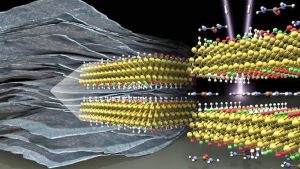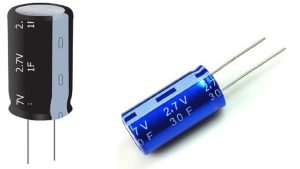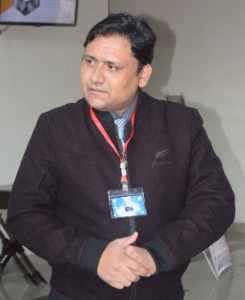Supercapacitors with high energy-density, power, and long cycle-life have potential to outperform traditional batteries owing to their fast charging-discharging speed. This project aims to investigate a new class of two-dimensional materials, i.e. MXenes, as high-capacity pseudocapacitive material. Most of the current understanding of MXenes comes from titanium carbides whereas other materials are less-understood which will be the focus of this project. The proposed research adapts a full spectrum of planning from synthesizing nanomaterials to device fabrication using other MXenes with a team including Prof. Deji Akinwande from University of Texas @ Austin-USA, Dr. M. Z. Iqbal and Dr. Mohammednoor Altarawneh from United Arab Emirates University University-UAE and Dr. Babak Anasori from Indiana University-Purdue University Indianapolis-USA.
Various scientific and technological challenges are identified at various stages of the project during the synthesis of MXenes, their applicability in electrochemical reactions and kinetics, and finally using MXenes in practical supercapacitors and batteries. The most important challenges are finding a fluoride-free solvent system which is extremely hazardous to environment, and its interaction with MXene during synthesis; mechanism and performance of synthesized MXenes in electrochemical energy storage, and device fabrications.
Accomplishing the described challenges will not only produce efficient nanomaterials, but also help bridging the gap between science and technology of these materials. Moreover, developing efficient energy storage and delivery devices will not only bolster Pakistan’s mission towards knowledge-based economy and strengthen entrepreneurship within the country but will also help attain UN Strategic Development Goals.
In Pakistan, most of the energy is wasted due to lack of storage capabilities. There are strong reasons to believe that the research will yield successful and technologically important results, which will not only add professional contribution towards equipping graduate students with advanced material, but it will also cater local needs for energy storage. The energy storage requires materials at nanoscale that are efficient to store the electric charge and are also efficient in discharging process. The materials proposed here will solve the issues for better lithium-ion batteries.
 The current research project will help the scientific world in understanding mechanism involved in storage of electric charge in two-dimensional nanostructures that will help in improving the charge storage capacity of batteries. The project will also help analyze the effect of defects, electrolyte, and new nanostructures on the performance of energy storage devices in terms of their stability, efficiency, capacity and retention.
The current research project will help the scientific world in understanding mechanism involved in storage of electric charge in two-dimensional nanostructures that will help in improving the charge storage capacity of batteries. The project will also help analyze the effect of defects, electrolyte, and new nanostructures on the performance of energy storage devices in terms of their stability, efficiency, capacity and retention.
This research will bring confidence for the industry to develop new materials designs to improve energy storage capabilities and will lay down foundation in implementing new two-dimensional materials as electrodes for batteries as well as newly introduced devices namely supercapacitors. Not only the experimental finding, the theoretical understanding of the findings will also help develop new strategies for future battery technology.
The author is Head of Physics Department, at School of Natural Sciences (SNS), National University of Sciences and Technology (NUST). He can be reached at syedrizwan@sns.nust.edu.pk.
Researcher’s Profile: https://www.researchgate.net/profile/Syed-Rizwan-4








